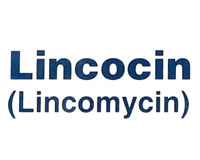
Lincocin
Drug Name: Lincocin
Active Ingredient: Lincomycin

Dosage:
Form: Capsule
Type: Generic
Prescription Required: ![]()
Availability: In Stock
Lincocin is commonly prescribed for the treatment of respiratory tract infections, skin and soft tissue infections, bone and joint infections, as well as infections of the abdomen, pelvis, and genital organs. It may also be used in certain dental procedures.
How to use
Here are some general guidelines for using Lincocin:
- Administration: Medicine is available in various forms, including oral capsules, injection, and topical preparations.
- Timing: If you are taking Lincocin orally, it is typically recommended to take it on an empty stomach, at least one hour before or two hours after meals. Follow the recommended dosing schedule provided to you.
- Complete the full course: It is important to complete the full course of treatment, even if you start feeling better. Stopping the medication prematurely can lead to incomplete eradication of the infection and potential relapse.
- Avoid missed doses: If you accidentally miss a dose, take it as soon as you remember. However, if it is almost time for your next scheduled dose, skip the missed dose and continue with your regular dosing schedule. Do not double up on doses to make up for a missed one.
Dosage
The following are general guidelines for Lincocin dosage:
- Oral capsules: The typical adult dosage for oral Lincocin capsules is 500 mg to 1 gram every 6 to 8 hours. The maximum daily dose should not exceed 8 grams.
Side effects
Common side effects of Lincocin can include:
- Gastrointestinal effects: These may include nausea, vomiting, diarrhea, stomach pain, and loss of appetite.
- Allergic reactions: Some individuals may experience allergic reactions to Lincocin, which can manifest as itching, rash, hives, swelling of the face or throat, difficulty breathing, or dizziness. Seek immediate medical attention if you experience any signs of an allergic reaction.
- Skin reactions: Lincomycin may rarely cause skin reactions such as skin rash, redness, itching, or sensitivity to sunlight.
- Injection-site reactions: If Lincocin is administered as an injection, there may be local reactions at the injection site, such as pain, swelling, or redness.
- Changes in blood counts: Medicine may affect blood cell production, leading to changes in blood counts. This can manifest as anemia (low red blood cell count), leukopenia (low white blood cell count), or thrombocytopenia (low platelet count). Regular monitoring of blood counts may be necessary during treatment.
- Other side effects: Less common side effects of Lincocin may include headache, dizziness, fever, joint pain, or muscle pain.
In case of severe or life-threatening side effects, such as difficulty breathing or a severe allergic reaction, seek immediate medical attention or call emergency services.
Storage
Lincocin should be stored according to the instructions provided by the manufacturer and on the product packaging. Here are some general guidelines for storing:
- Temperature: Medicine should be stored at room temperature, typically between 20°C and 25°C (68°F and 77°F). Avoid exposing the medication to extreme temperatures, such as freezing or high heat.
- Protect from moisture: Keep Lincocin away from excessive moisture, as it can degrade the medication. Store it in a dry place and avoid storing it in the bathroom or near sinks.
- Keep in the original packaging: Leave capsules in its original packaging or container until it is time to use the medication. This helps protect it from light, moisture, and other environmental factors.
- Away from children and pets: Store drug in a secure location that is out of reach of children and pets. It is essential to prevent accidental ingestion or misuse of the medication.
- Do not use expired medication: Check the expiration date on the packaging of Lincocin. Do not use the medication if it has expired. Properly dispose of any expired or unused medication as directed by local regulations or guidelines.
Overdose
An overdose of Lincomycin can be potentially dangerous and should be avoided. If you suspect an overdose or have accidentally taken more than the prescribed dose of Lincocin, it is important to seek immediate medical attention or contact your local poison control center.
Symptoms of an overdose may include:
- Severe diarrhea: Excessive doses of Lincomycin can cause severe diarrhea, which may be accompanied by abdominal cramps, dehydration, and electrolyte imbalances.
- Allergic reactions: An overdose of Lincocin can increase the risk of severe allergic reactions. These reactions may include difficulty breathing, swelling of the face or throat, hives, itching, or a rash.
- Neurological symptoms: In rare cases, an overdose of this drug may lead to neurological symptoms such as dizziness, confusion, seizures, or loss of consciousness.
Missed Doses
If you miss a dose of Lincocin, it is important to take it as soon as you remember. However, if it is almost time for your next scheduled dose, skip the missed dose and continue with your regular dosing schedule. Do not double the dose to make up for the missed one.




